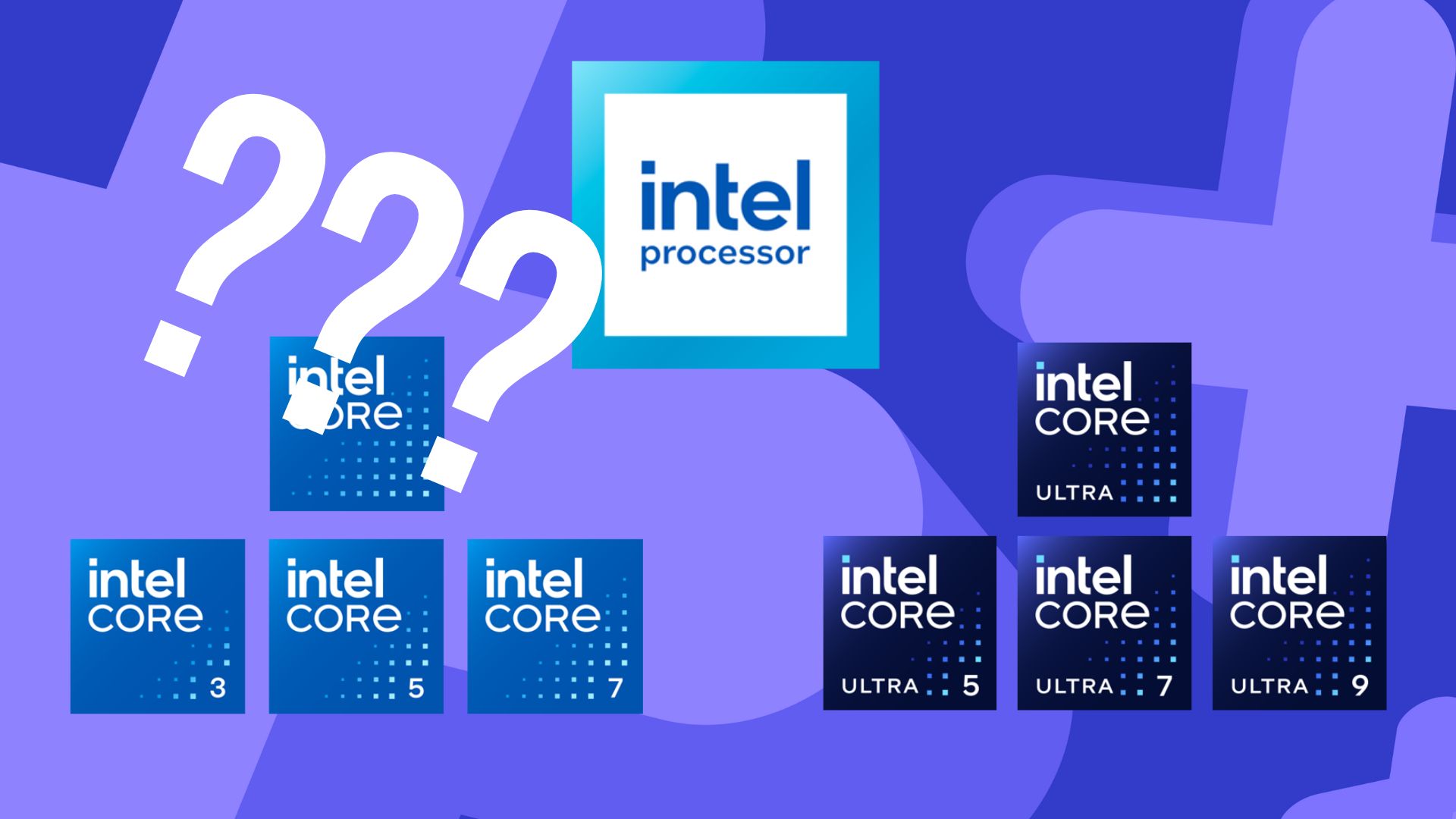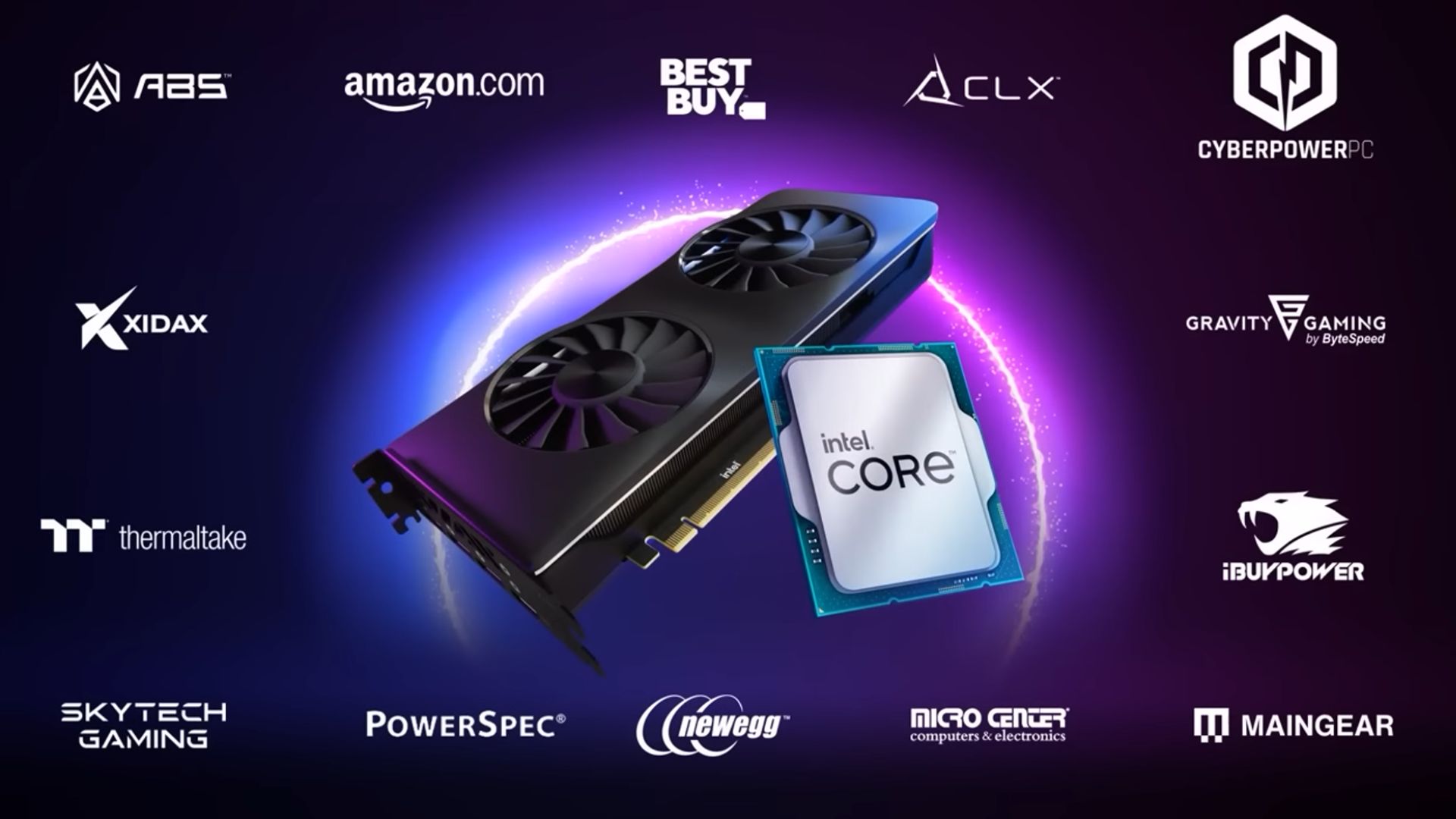
Intel has announced a big change to its CPU branding - the first naming change in 15 years. This has been a speculated move from Intel for a while now, with many arguing AMD's naming conventions make things clearer, as suggested by its increased market share of late.
The change comes as Intel prepares to launch the Meteor Lake line of CPUs, which is essentially the company's 14th generation of processors. This follows on from Intel's 13th generation which we're currently in the process of testing out. Although we've been used to referring to the best CPUs for gaming with those signature "i" levels, the biggest change of this branding update drops that completely.
Intel explains that "Meteor Lake represents an inflection point in Intel’s client processor roadmap. It will be the first client processor manufactured on the new Intel 4 process node. It’s the first client chiplet design enabled by Foveros advanced 3D packaging technology, and it will deliver improved power efficiency and graphics performance. It’s also the first Intel client processor to feature a dedicated AI engine: Intel AI Boost."
Gaming hardware and PC components almost never have names that are easy to understand. While it is big news for one of the biggest computing brands to change its naming convention, we thought it might be easier to set out precisely what is and isn't changing down below. For a change that's supposed to simplify the company's branding, it sure does take some explaining.
Hopefully, the areas down below will clear up any questions you might have.

No "i" in team... anymore
The biggest and most notable change is that from now on, Intel is abandoning the "i" before its processor tier numbers. So where there were Intel i3/i5/i7/i9 CPUs, they will now keep those numbers, but omit the letters. Think of AMD Ryzen 5/7/9, for example.
So now, with the Meteor Lake CPUs, we have Intel Core 3/5/7. Having said that, we won't have a Core 9, as that's been kicked into a new family of its own. More on that soon.
Intel says it will no longer place generational messaging in front of its Intel Core brand, although the generation of the processor will be listed in a chip's processor number. What's slightly more confusing, is that Intel wants its CPUs to bear the name "processor" before its identification number.
So, for instance, a 13th Gen Intel Core i5-13600K will become an Intel Core 5 processor 13600K. These changes will take effect starting with the Meteor Lake line and will apply to all releases going forward.
It isn't entirely clear whether Intel will try to make this a retroactive change and apply these new naming conventions to their older CPUs, so forgive that example if not.

What is Intel Core Ultra?
The other reason these naming conventions might not work back-the-way is that there are now going to be two separate tiers of Intel CPU available. We've seen performance-boosted processors before. Again, think of AMD's Ryzen CPUs that are geared toward content creators and designers, and hold that X after their name.
It's not totally clear just now what exact form will take because we don't have officially named Meteor Lake CPUs to use as examples. My guess is that The "KF" versions of Intel's processors will now be separated into their own tiers. This new family will be called the "Intel Core Ultra" range.
Again, there won't be any "i" lettering involved here. In this family we will have Intel Core Ultra 5, Intel Core Ultra 7, and Intel Core Ultra 9. This is the new premium line of Intel processors, which will likely hold the best gaming performance. As I say, I expect these to be the equivalent performance boost of an Intel Core i5-13600K vs an Intel Core i5-13600KF.
When it comes to numbering, it's a similar story to the Core family - Intel wants the number after the word processor, so for example, an Intel Core Ultra 7 processor 14700KF (that number is unconfirmed, just a potential example of what we'll see).

In summary:
So in short, Intel is doing the following:
- Dropping the "i" lettering from its CPU naming conventions.
- Removing the i9 tier from the Core line.
- Creating a new band of higher tier processors named Intel Core Ultra.
- Moving the CPU's identification number to after the word processor.
- Trying to shift away from using the word "generation" in front of its Intel Core branding.
Try to think of it like Nvidia's big GTX to RTX change with its graphics cards, and it almost makes sense. Or, again, think of it like a move toward AMD's branding levels, and it sort of lines up.
The entire "number goes after the word processor" move is the most disjointed to me, and it makes things a bit wordy. In truth, once this naming convention enters the zeitgeist and the internet gets a hold of it, it'll likely be called variations of these things.
What's also strange to me is moving the i9 to the Core Ultra tier. Don't get me wrong, these CPUs are often overkill for most people, even for folks who play a lot of games at high settings. My guess is that this move is also a way to introduce more people to Intel Balance Builds, an initiative the company is moving to in order to pair more of its components together to help people capitalize on price-to-performance ratios.
Even so, moving the "KF" processors to this higher tier, which is definitely what it seems like, will be a bit of a strange one that might actually make things more complicated. Imagine if Nvidia moved its "Ti" variant graphics cards to a separate range, for example. Then again, there's precedent in the CPU market to do so because of the high performance of AMD's "X" or "X3D" processors.
Fancy some other PC component upgrades? Check out the best graphics cards, the best RAM for gaming, and the best SSD for gaming.







